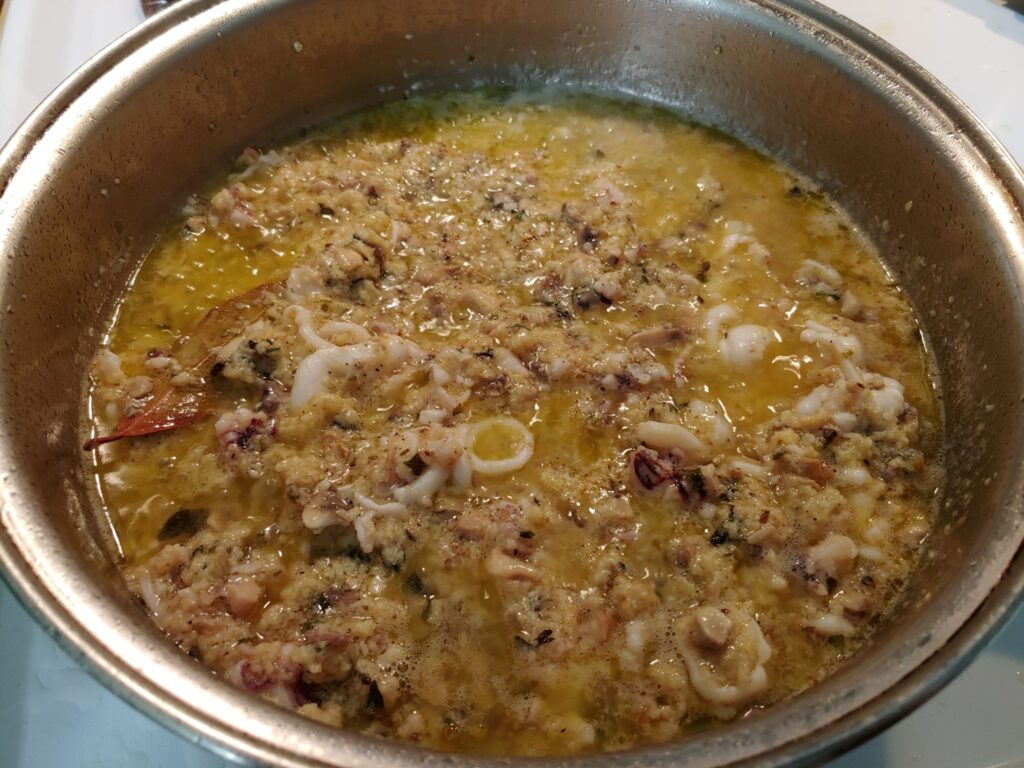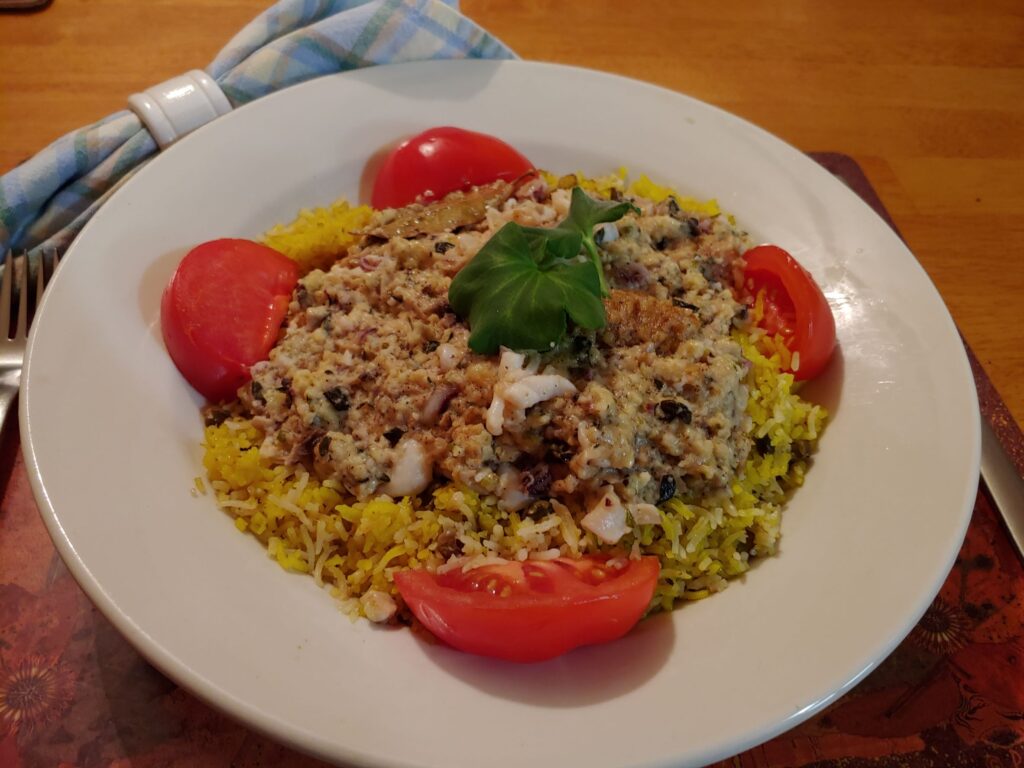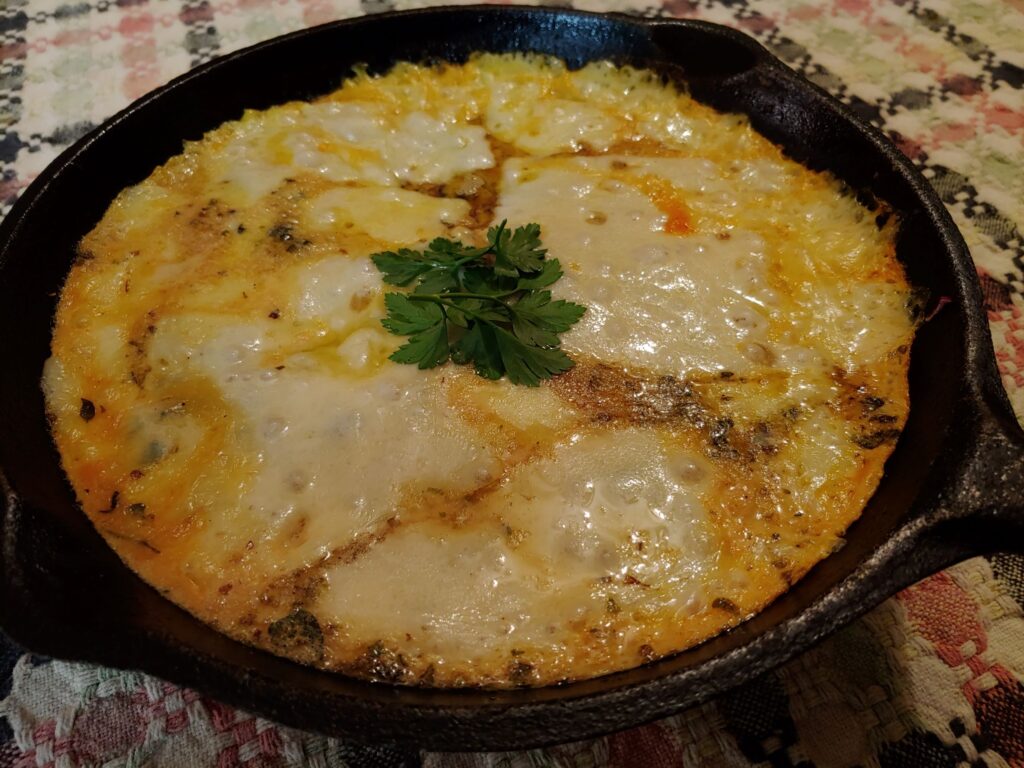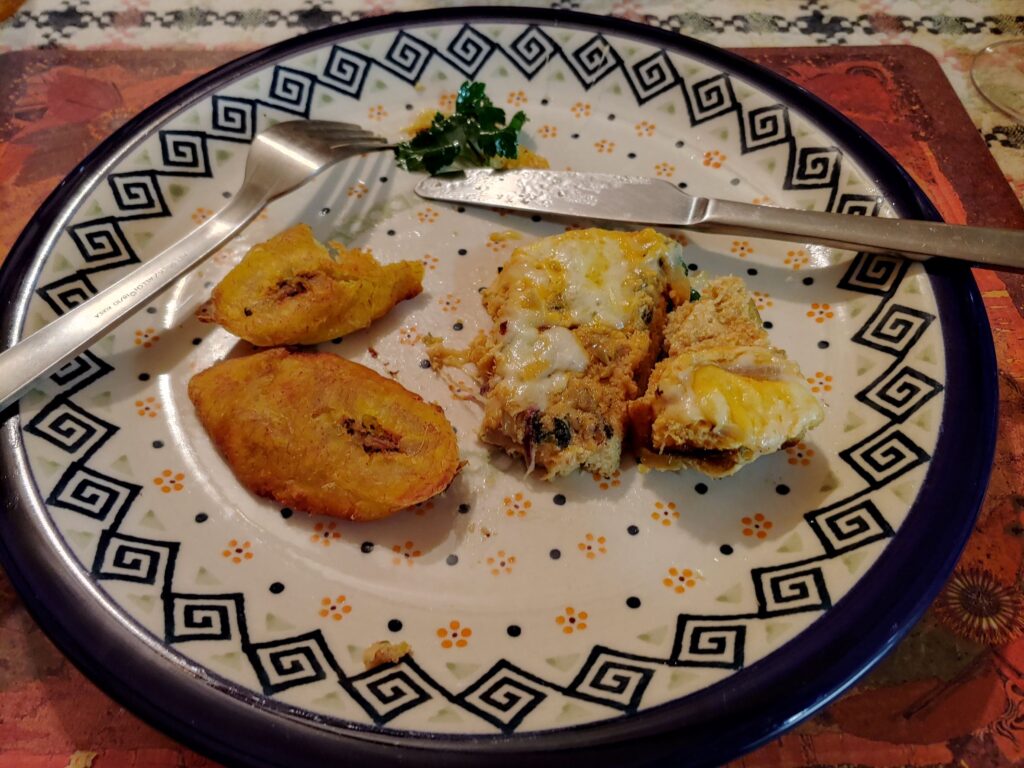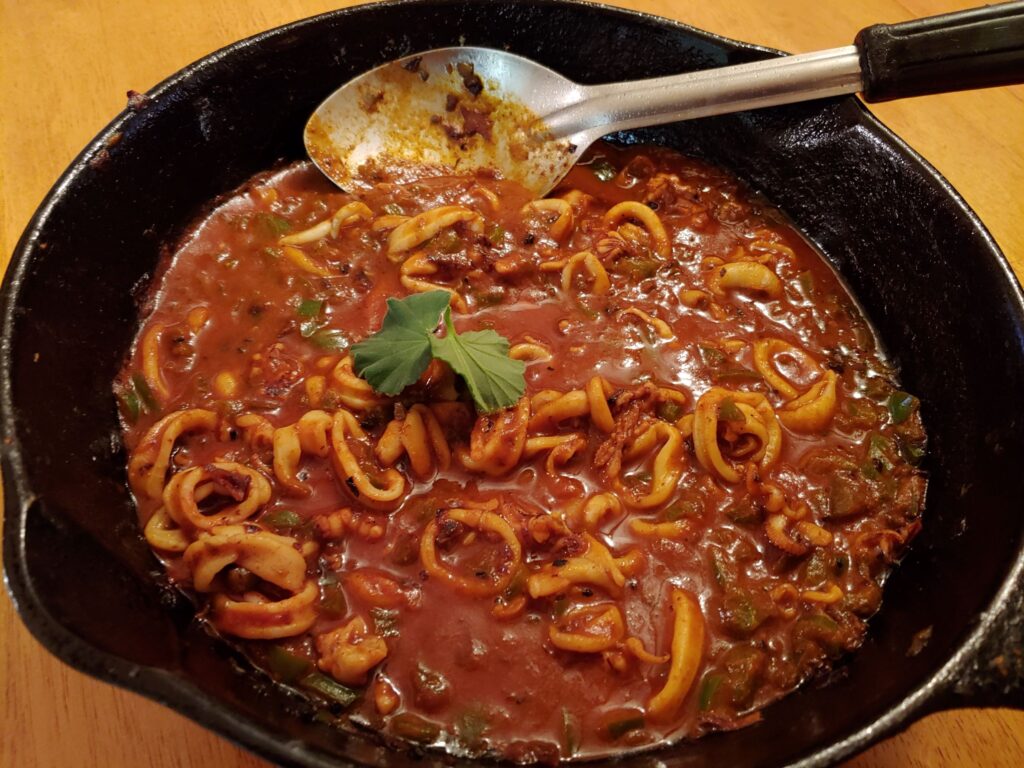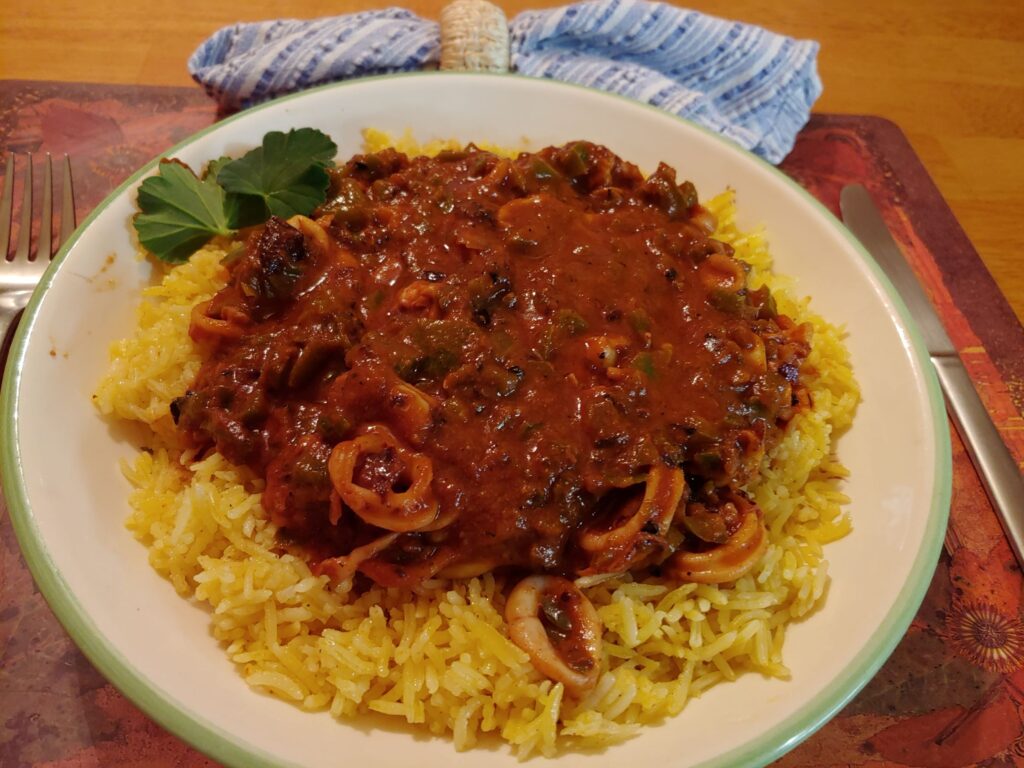This dish has been a favorite in our crowd since I can remember. I’m told it’s origin is French Continental cuisine. If that’s the case, then merci. Anytime I crave something special regarding scallops, this is the go-to recipe. These scallops simmered in cream and vermouth make for a deliciously decadent entrée that goes greet with rice, couscous, quinoa, farro or pasta. We paired it with egg noodles, and it was heavenly.
CALLOPS WITH TOMATOES
Ingredients:
1½ pounds scallops
2 tablespoon butter
1 pound tomatoes, seeded and diced or 1 can (28-oz,) tomatoes, drained and diced
Salt and ground black pepper to taste
½ cup heavy cream
½ cup dry vermouth
¾ teaspoon crushed saffron threads
Instructions:
- Rinse scallops under cold running water and pat dry with paper towels. Cut any large scallops in half.
- Melt butter in a fry pan or deep skillet. Add scallops and cook over low heat, stirring, 3 to 4 minutes. Add tomatoes, salt, pepper and cook over high heat, stirring, 5 to 7 minutes or until mixture is dry.
- Stir in cream, vermouth and saffron. Bring to a boil, add scallops and cook over medium heat until tender. Using a slotted spoon, remove scallops and transfer to a hot buttered platter. Cover and keep warm. Boil cooking liquid, stirring occasionally, until thick enough to coat a spoon. If needed, taste and adjust seasoning.
- Pour sauce over scallops, mix well and serve immediately.
Yield: 4 servings.








